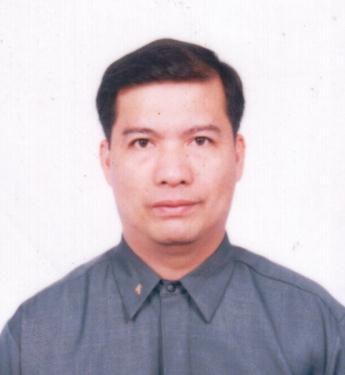Draft Plan on the Current System
A high-level group examining the global nature of The
United Methodist Church is suggesting significant
organizational and governance changes for the denomination.
The proposal would end the current system that splits the
United States from the Central Conferences that govern the
church outside the U.S. It would end the jurisdictional
conference system and make the United States a Central
Conference.
These proposals come from a joint task force of
bishops and members of The Connectional Table, the key
coordinating arm of the denomination. Since 1964, the
church has had numerous studies, task groups and
legislative attempts to clarify the world-wide nature of
the denomination.
The draft plan given to bishops on Nov. 3 would
revise the Book of Discipline into a “truly general book of
doctrine, mission and discipline, deleting all portions
that apply only to the United States.” Each Central
Conference would have a book of discipline outlining rules
applicable to its life and ministry. Other publications
such as hymnals could be specific to each Central
Conference.
These changes would require approval by the
General Conference. “These changes would strengthen our
unity and missional effectiveness as a united church
working on our continents,” the task force said.
While adding flexibility and support for regional units of
the church, “the changes… do not solve all the problems
facing the church… They do address the fundamental
structures and processes,” the task force concluded.
The power of the General Conference will
essentially remain the same, the task force said. General
agencies will remain as agencies for the whole church. The
Judicial Council would remain as a general church body
elected by the General Conference. The Council of Bishops
remains as the council for the entire church.
Central conferences would consider resolutions
pertinent to their regions. They could create and fund
their own agencies. They could establish their own
educational requirements for clergy. They could establish
mission initiatives appropriate for their context.
The task force is continuing its work. It is
inviting feedback from annual conferences, districts, and
local churches. It has asked the General Commission on
Christian Unity and Interreligious Concerns to engage its
partners in conversations on the ecumenical implications of
a U.S. Central Conference. It is exploring what General
Conference legislation will be required.
The group will make a second report to the
Connectional Table and Council of Bishops in spring, 2007.
Bishops’ Unity Group Urges New Thinking on Division,
Controversy, Debate
Bishops are being urged to take a “cross every
line” approach when dealing with controversial theological
and social issues before denominational caucuses.
The Council of Bishops’ Task Force on Unity
called on bishops to invite colleagues “from a different
corner” to join them when asked to speak on issues before
the special-interest groups.
In its report, the task force said the council
needs to take responsibility to cross theological,
jurisdictional, and racial ethnic lines in bishops’
presence at such events. This is another move to focus the
church on the need and benefit of holy conferencing.
Reflecting widespread concern over the tone of
debate at General Conference, the group is developing a
“Covenant for Conversation” it hopes will be a model, or
“rules of engagement” for the 2008 General Conference in
Fort Worth.
Stemming from Wesley’s General Rules, the
biblical model is based on James 1:19, “Be swift to hear,
slow to speak and slow to anger,” and Ephesians 4:15, “to
speak… the truth… in love… together.” The elements are:
- To speak: we invite all voices into the
conversation
- The truth: it takes all voices to discern the
truth; requires “I” statements
- In love: speaking to and about others with
generous compassion
- Together: truth and love come only through
community, the need to broaden the conversation, not to
remain in isolated pockets
The recommendations are elements of a strategy focused
on bishops taking a more proactive role in the time
approaching General Conference. More discussion is
continuing on bishops’ role in leading the church toward
unity, in presiding at General Conference, how annual
conferences handle controversial issues, and their
interaction with caucus groups.
Study of Episcopacy Group Seeks Bishops’ Input on Change
Ideas
The denomination’s Task Force to Study the Episcopacy is
seeking input from bishops on a number of suggestions that
have arisen out of its work. The task force is comprised of
laypersons, clergy, and bishops.
Bishops are receiving a questionnaire asking them to rate
the issues that rose from their work so far. Participants
are asked to give ratings of 1 – absolutely not; 2 – worthy
of exploration; and 3 – absolutely. The issues are:
- Limiting bishops’ terms to 8-12 years with an
option for re-election.
- Ending a bishop’s term at retirement, and
returning the bishop’s membership to the annual
conference from which he/she is elected.
- Annual conferences pay for its bishop’s health
benefits.
- Reduce the number of bishops in the United States.
- Establish a permanent office of presidency for the
Council of Bishops.
- General Conference legislation on the complaint
process, administrative leave for ineffective clergy,
expanding 8 year assignments to 12 years.
- Designating bishops as a third order.
- Aligning changes in the episcopacy to a strong
theology on the bishop’s relationship to making disciples
for Jesus Christ for the transformation of the world.
Bishops are asked to provide their comments and additional
suggestions to Bishop Sally Dyck of the Minneapolis Area.
----------------------------------------------------
Powered by United Methodist Communications.
www.UMCom.org


0 Comments:
Post a Comment
<< Home